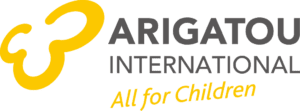Arigatou International co-signed a joint NGO statement on the Third Phase of the World Programme for Human Rights Education that was presented during the 24th Session of the UN Human Rights Council, under the Agenda item 3: Promotion and protection of all human rights, civil, political, economic, social and cultural rights, including the right to development.
The World Programme for Human Rights Education is structured in consecutive phases. The first phase (2005-2009) focused on human rights education in the primary and secondary school systems. The second phase (2010-2014) focuses on human rights education for higher education and on human rights training programmes for teachers and educators, civil servants, law enforcement officials and military personnel.
A report was released in June 2013 by the Office of the High Commissioner for Human Rights (OHCHR) that compiles the views of States, national human rights institutions and other relevant stakeholders on the target sectors, focus areas and thematic human rights issues for the Third Phase of the World Programme for Human Rights Education.
Mr. Kazunari Fujii (Soka Gakkai International – SGI) delivered the statement on behalf of the 16 co-signatory organizations. The joint statement welcomes the OHCHR report on the Third phase of the World Programme, asks for the accountability of the States, realistic goals and means, and the involvement of civil society actors. It also reminds that human rights education is a sustainable approach to deal with the roots causes of any human rights violations concerning all people, including children.
The statement calls upon Member States to ensure the continuity of the implementation of each phase of the programme; the integration of human rights education in preparation of teaching and training personnel of all sectors, and; the accountability of national and local authorities for human rights education.
Arigatou International supports the Third Phase of the World Programme and welcomes the focus on training to ensure that governments support the formal training of teachers and other personnel in human rights issues, in which child rights and intercultural and interfaith learning are extremely relevant to support peace building processes.


